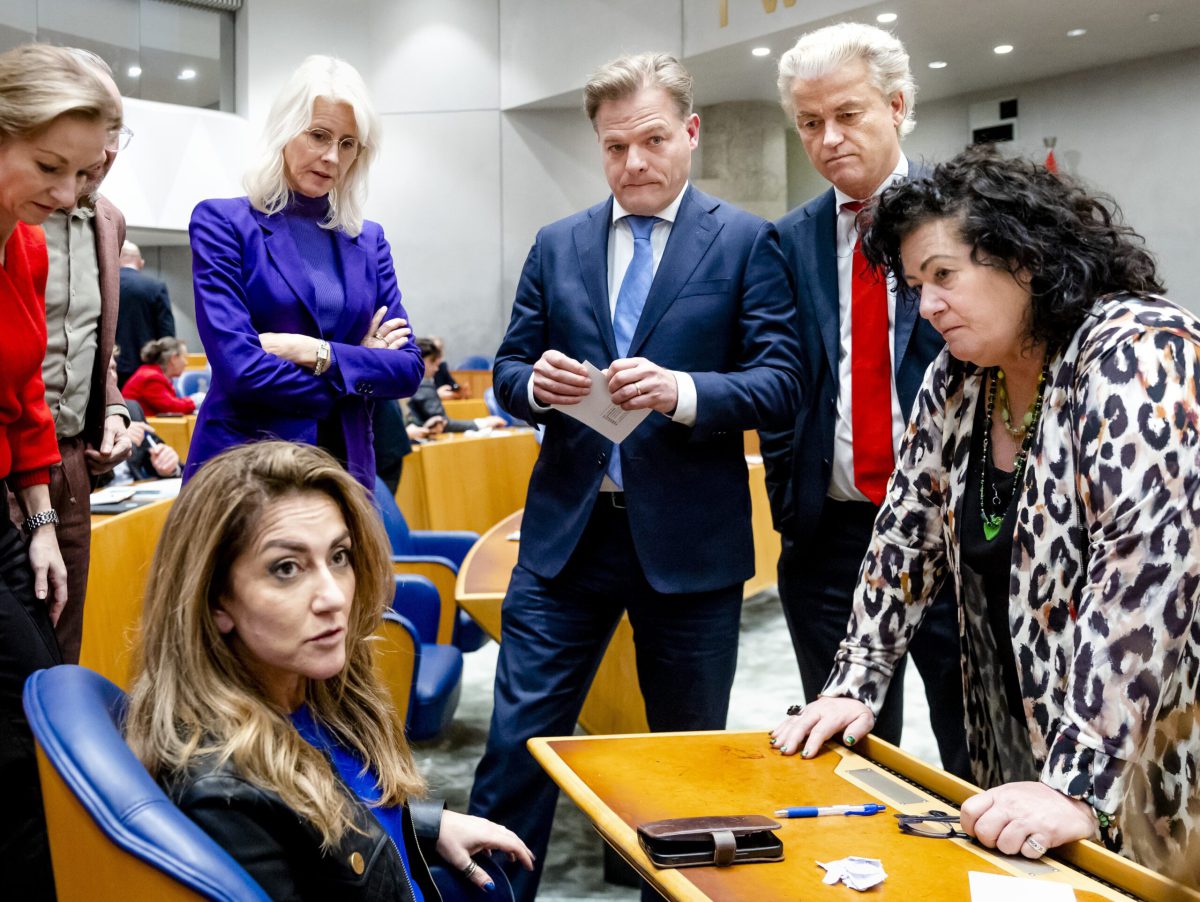The ever-increasing practice of mainstream political parties employing radical-right ideas is not a secret (Mudde, 2023). While these ideas were usually associated with parties located in the far-right of the political spectrum, they are currently becoming a part of mainstream party programs as well, and the once go-to practice of ‘cordon sanitaire’ increasingly becomes a history (Abou-Chadi et al., 2022; Hublet et al., 2023). As a result, we see an increasing number of European countries where center-right and far-right political parties end up in a coalition government, such as Austria, Finland, Italy, and Sweden.
A similar scenario may unfold in the Netherlands in light of the groundbreaking snap elections held last November. The far-right PVV, led by Geert Wilders, has become the biggest party in the Netherlands for the first time, grabbing 37 seats and around a quarter of the vote share (Schaart, 2023). The electoral strategy employed by the mainstream center-right evolved into a primary prerequisite for such a result. Since the Rutte IV cabinet collapsed over the family reunification policy for asylum seekers, immigration became the central electoral issue.
While VVD, a party that dominated Dutch politics over the last decade, heavily campaigned on tightening immigration and opened the door for PVV as a potential coalition partner, it could not avoid losing a part of its electorate to PVV. Theoretical works on party competition outline that mainstream parties usually lose support to niche parties when they compete over issues owned by the niche party (Meguid, 2008). It seems to be the case in the Dutch elections as well, where parties went into long periods of talks in ways to find a viable governing coalition.
As of today, the potential coalition consists of VVD (mainstream center-right), NSC (a breakaway center-right), BBB (right-wing), and PVV (far-right). A notable development throughout the campaign period and later during the coalition talks is the way the center-right tries to navigate in these waters. On the one hand, VVD leader Dilan Yeşilgöz appeared more radical in the pre-Election period but toned down in the aftermath and refused the possibility of Wilders becoming the PM. On the other hand, NSC, which consistently ruled out a coalition with PVV with the rule of law concerns, shifted to a more moderate tone after the exit poll results.
It mirrors a general trend of center-right parties’ inability to fully utilize radical-right ideas as they face “ideological consistency and credibility” problems (Abou-Chadi et al., 2022). As a matter of fact, VVD experienced a rift within its ranks precisely on immigration, where prominent party members in the Senate voted for the law that would evenly distribute asylum seekers among Dutch municipalities (Hartog, 2024). Furthermore, the NSC quit talks in early February by citing disagreements over financial policies (Camut, 2024). One should note that both parties were still ready to provide confidence and supply to the PVV-led minority cabinet without direct participation.
In the latest turn of events, Wilders announced that he would not seek a PM post as it is a precondition for continuing talks by the rest of the potential coalition partners (Wilders, 2024). However, this does not change anything essentially since the overall trend remains concerning. Regardless of how parties behave and whether they try to (de)radicalize in their rhetoric or policy choices, the Dutch case is yet another example of how center-right radicalization in electoral campaigning merely leads to the normalization of radical-right policy ideas.
The ambiguity in center-right behavior and their consequent efforts to decouple from far-right is of no use, with PVV polling even higher now, potentially getting a third of all seats if elections were held today (unlike the quarter of all seats that they got in November). With fractured center-right trying to sit on both chairs, surging far-right, and the unprecedented debates around the Dutch constitution and the rule of law, the future of the Dutch democracy seems grim, with coalition talks having no visible outcome, at least in the foreseeable future.
References
Abou-Chadi, T., Cohen, D., & Wagner, M. (2022). The centre-right versus the radical right: the role of migration issues and economic grievances. Journal of Ethnic and Migration Studies, 48(2), 366-384.
Camut, N. (2024, February 6). Geert Wilders left stranded as Dutch coalition talks collapse. POLITICO.
Hartog, E. (2024, January 25) Geert Wilders has a serious problem, POLITICO.
Hublet, F., Lanoë, M., Schleyer, J. (2023). Spelling out the European center-right’s dilemma: renewal of the grand coalition or national-conservative alliance? Groupe d’Études Géopolitiques.
Meguid, B. M. (2008). Party competition between unequals. Cambridge University Press.
Mudde, C. (2023). Right-Wing Studies: A Roundtable on the State of the Field. Journal of Right-Wing Studies, 1(1).
Schaart, E., Haeck, P., & Vela, J. H. (2023, November 23). Far-right leader Geert Wilders wins Dutch election. POLITICO.
Wilders, G. (2024, March 13). Ik kan alleen premier worden als alle partijen in De Coalitie Dat Steunen. DAT was Niet Zo. Ik wil graag een rechts kabinet. Minder ASIEL EN IMMIGRATIE. Nederlanders OP 1. De Liefde voor mijn land en kiezer is groot en belangrijker dan mijn eigen positie. X.


